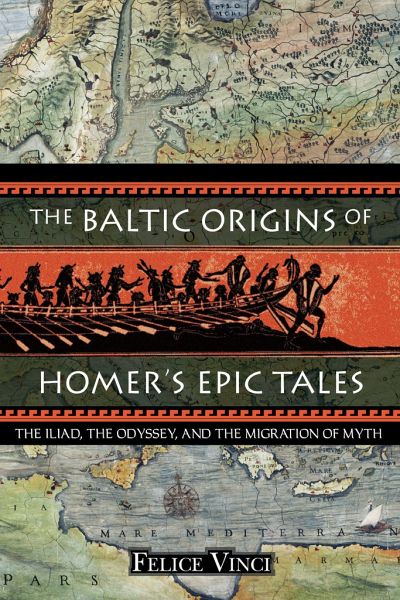Nicht lieferbar

The Baltic Origins of Homer's Epic Tales
The Illiad the Odyssey and the Migration of Myth
Versandkostenfrei!
Nicht lieferbar
HISTORY / CLASSICAL STUDIES "It is hard to overstate the impact, both scholarly and imaginative, of Vinci's compellingly argued thesis. . . . Scholars will be rethinking Indo-European studies from the ground up and readers of Homer's epics will enter fresh realms of delight as they look anew at the world in which Homer's heroes first breathed and moved." --Professor William Mullen, department of classics, Bard College "Powerful, methodical, important, and convincing . . ." --Alfred de Grazia, author of Burning of Troy For years scholars have debated the incongruities in Homer's Iliad and Odyss...
HISTORY / CLASSICAL STUDIES "It is hard to overstate the impact, both scholarly and imaginative, of Vinci's compellingly argued thesis. . . . Scholars will be rethinking Indo-European studies from the ground up and readers of Homer's epics will enter fresh realms of delight as they look anew at the world in which Homer's heroes first breathed and moved." --Professor William Mullen, department of classics, Bard College "Powerful, methodical, important, and convincing . . ." --Alfred de Grazia, author of Burning of Troy For years scholars have debated the incongruities in Homer's Iliad and Odyssey, finding the author's descriptions at odds with the geography he purportedly describes. Inspired by Plutarch's remark that Calypso's island home was only five days' sail from Britain, Felice Vinci convincingly argues that Homer's epic tales originated not in the Mediterranean, but in northern Europe's Baltic Sea. Using meticulous geographical analysis, Vinci shows that many Homeric places, such as Troy and Ithaca, can be identified in the geographic landscape of the Baltic. He explains how the cool, foggy weather described by Ulysses matches that of northern climes rather than the sunny, warm Mediterranean and Aegean, and how battles lasting through the night would easily have been possible in the long days of the Baltic summer. Vinci's meteorological analysis reveals how the "climatic optimum"--a long period of weather that resulted in a much milder northern Europe--declined and thus caused the blond seafarers of the Baltic to migrate south to warmer climates, where they rebuilt their original world in the Mediterranean. Through many generations the memory of the heroic age and the feats performed by their ancestors in their lost homeland was preserved and handed down, ultimately to be codified by Homer as the Iliad and the Odyssey. In The Baltic Origins of Homer's Epic Tales, Felice Vinci offers a key to open many doors, allowing us to consider from a new perspective the age-old question of the Indo-European diaspora and the origin not only of Greek civilization, but of Western civilization as a whole. FELICE VINCI is a nuclear engineer with an extensive background in Latin and Greek studies. Since 1992 he has been researching his theory on the northern origin of Greek mythology. He lives in Rome.




